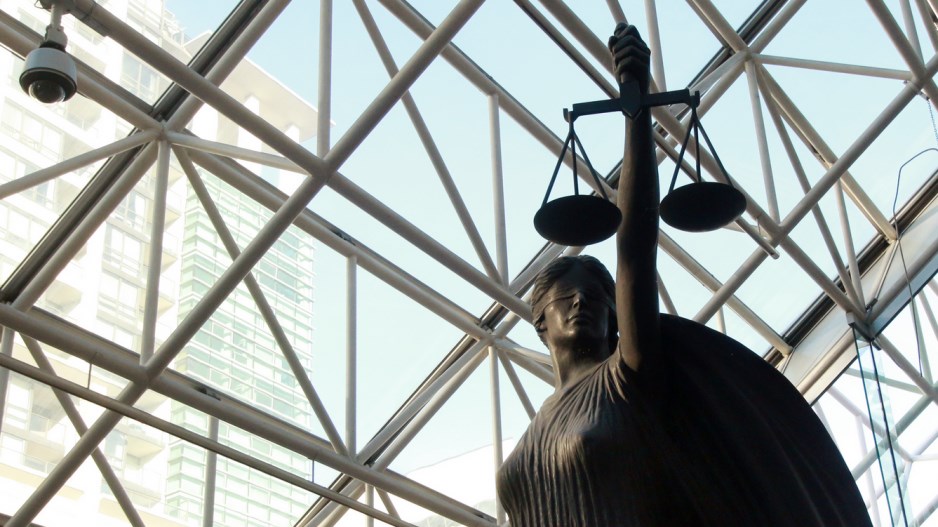One of the most-visible Save Old Growth protesters will have no criminal record if he refrains from blocking vehicles or pedestrians for the next two years.
Ian Wiltow Schortinghuis, 30, pleaded guilty on June 29 to three counts of mischief and two counts of breach of undertaking for his role in protest roadblocks in Vancouver, Burnaby and Richmond.
Schortinghuis was arrested June 13 at the Massey Tunnel and jailed until his June 30 sentencing. In Vancouver Provincial Court, Judge Laura Bakan sentenced Schortinghuis to time served, 24 months probation and 125 hours of community service work. She opted for the conditional discharge, because a criminal record would harm Schortinghuis’s ability to further his career or travel outside Canada.
“It puts the onus on you to make sure that you do not reoffend,” Bakan told Schortinghuis, who appeared via video from North Fraser Pretrial Centre. “If you reoffend you will likely lose the benefit of a conditional discharge and face a sentence for any new charges.
Bakan waived the $100 per offence victim surcharge. She said Schortinghuis was a first time offender with mental issues, including attention deficit/hyperactivity disorder (ADHD), who quickly pleaded guilty to all charges and expressed genuine remorse.
Bakan said Schortinghuis had previously volunteered for Hollyhock and Meals on Wheels and has been accepted into an auto repair program at Vancouver Community College. He had lost his job as a bike courier during the pandemic and felt a sense of belonging with Save Old Growth.
“He fits the profile of some persons that I find, unfortunately, are used by organizations as foot soldiers while those behind organizing stay safe and sound,” Bakan said.
Schortinghuis was part of a group that blocked Ironworkers Memorial Second Narrows Bridge traffic on April 4, Grandview Highway and Boundary Road on April 27 and the Massey Tunnel on June 13. He was released after each of the first two incidents when he promised to not block traffic or pedestrians. He refused to surrender outside the Massey Tunnel, prompting police to use a truck to pluck him from a ladder.
Just before Schortinghuis pleaded guilty on June 29, Save Old Growth announced it was ending major traffic disruptions and would turn to other tactics, including public outreach and events.
Bakan called Schortinghuis’s dangerous actions harmful to the health and wellbeing of both the community and the environment. While she doesn’t think many people deny climate change in Canada, “it is not the message of the protesters, it is the way they go about it.”
“While there was no individual complainant in this case, hundreds of persons driving during rush hour in the Lower Mainland area were blocked from reaching work, medical appointments, dropping children at school and daycare,” Bakan said. “Numerous people were stuck in the tunnel or on a bridge when there is no means of turning around. These effects of being stuck in this manner pose a risk of trauma, especially to persons with anxiety, children, and those who are missing crucial medical appointments, including persons from Vancouver Island who may be seeing medical specialists in the Lower Mainland.”
Bakan said the blockades caused more carbon emissions in the atmosphere due to vehicles idling or diverting to longer routes and deprived vulnerable Downtown Eastsiders suffering in the opioid overdose public health emergency.
“Anyone can see, walking outside this courthouse, a pandemic of its own. Sirens go off every five minutes, because people require resuscitation, hospitalization,” she said. “When paramedics are diverted by having to be at protests, those people are at risk and they're very marginalized.”
Bakan cited various court precedents about the limits of freedom of expression and said that when one group breaks the law, another group that’s affected breaks the law. “That’s how anarchy starts and society breaks down.”

.jpg;w=120;h=80;mode=crop)


